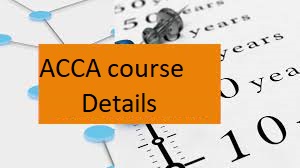Unlocking the Path to Success: ACCA Course Details, Exam Fees, and Full Form
Are you passionate about finance and dream of building a rewarding career in the world of accounting? If so, the ACCA qualification might be your golden ticket to success. In this comprehensive guide, we will delve into the ACCA course details, exam fees, and what ACCA stands for, providing you with all the essential information you need to embark on this exciting journey.
What is ACCA?
Let's start with the basics. ACCA stands for the Association of Chartered Certified Accountants. It is a globally recognized professional accounting body that offers a prestigious qualification for individuals aspiring to become chartered accountants. ACCA is known for its rigorous standards, ensuring that its members are well-equipped with the knowledge and skills required to excel in the world of finance.
ACCA Course Details
1. Entry Requirements
Before diving into the details of the ACCA course, it's important to understand the entry requirements. To enroll in the ACCA program, you typically need:
- A minimum of two A-levels and three GCSEs (or equivalent qualifications) in five separate subjects, including English and Mathematics.
- If you don't meet these educational requirements, you can still enter the ACCA program by starting with the ACCA Foundation level or ACCA Diploma in Accounting and Business.
2. Structure of the ACCA Qualification
The ACCA qualification is divided into several levels and modules:
Knowledge Level (F1-F3): These are the fundamental levels covering the basics of accounting, management accounting, and financial accounting.
Skills Level (F4-F9): The skills level dives deeper into areas such as corporate and business law, taxation, and financial management.
Essentials Level (P1-P3): This level focuses on more advanced topics like strategic business reporting, business analysis, and advanced audit and assurance.
Options Level (P4-P7): At this level, you can choose from a variety of electives, such as advanced financial management, advanced performance management, and advanced taxation.
3. Duration
The duration of your ACCA journey may vary depending on your prior qualifications and the time you can commit to studying. On average, it takes around 3-4 years to complete all the required exams and gain the necessary practical experience.
4. Exams
ACCA exams are held four times a year, in March, June, September, and December. You can take the exams in any order, but you must pass all the required papers to become a qualified ACCA member.
5. Practical Experience
In addition to passing the exams, you need to complete three years of relevant practical experience to achieve ACCA membership. This practical experience helps you apply your knowledge in real-world scenarios.
ACCA Exam Fees
As you progress through the ACCA qualification, you'll need to pay exam fees for each paper you take. The exam fees can vary depending on your location and the specific papers you choose, but they typically range from £80 to £190 per paper. It's essential to budget for these fees as you plan your ACCA journey.
ACCA Full Form
We mentioned earlier that ACCA stands for the Association of Chartered Certified Accountants. This title reflects the prestigious nature of the qualification. Becoming a Chartered Certified Accountant means that you have reached the highest level of expertise in the field of accounting and finance.
The "Chartered" part of the title indicates that you hold a professional qualification of the highest caliber. "Certified" signifies that you are not just qualified but also competent and experienced in your field. And of course, "Accountants" clarifies your area of expertise.
Why Choose ACCA?
Now that you have a solid understanding of ACCA course details, exam fees, and what ACCA stands for, let's explore why you should consider pursuing this qualification:
Global Recognition: ACCA is recognized and respected worldwide. This means that your qualification is portable, and you can work in various countries without requalifying.
Versatile Career Opportunities: ACCA opens doors to a wide range of career opportunities in accounting, finance, and business management. You can work in public practice, industry, or even start your own business.
High Earning Potential: ACCA qualified professionals often command higher salaries compared to those without the qualification. Your expertise and knowledge are highly valued in the job market.
Continuous Learning: The world of finance is dynamic, and ACCA ensures that its members stay up-to-date with the latest industry trends and regulations through its continuing professional development (CPD) program.
Ethical Standards: ACCA emphasizes ethical behavior and integrity in its members, making you a trusted and respected professional in the field.
In conclusion, the ACCA qualification offers a clear path to a successful career in accounting and finance. By understanding ACCA course details, exam fees, and the significance of the ACCA full form, you can make an informed decision about whether this prestigious qualification aligns with your career aspirations. Embarking on the ACCA journey may be challenging, but the rewards in terms of career opportunities and personal growth are well worth the effort. So, are you ready to take the first step towards becoming a Chartered Certified Accountant? The journey begins here.


Comments
Post a Comment